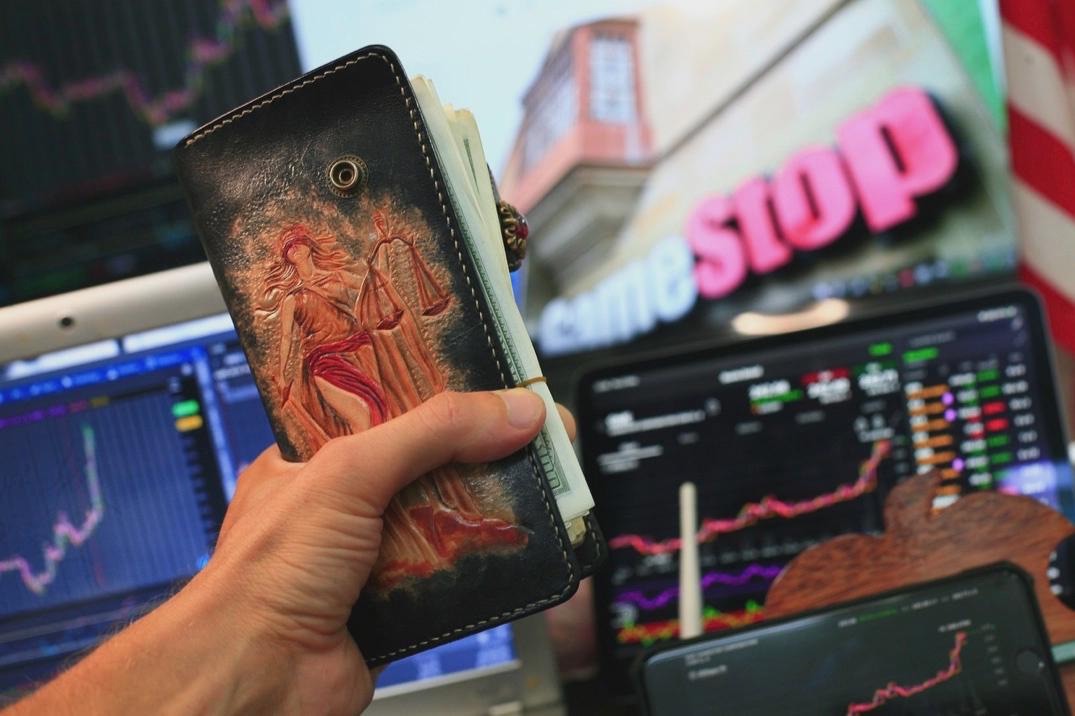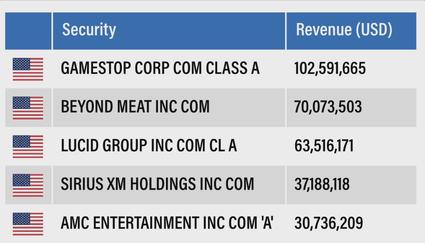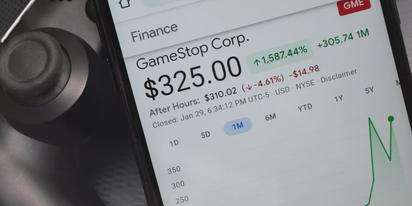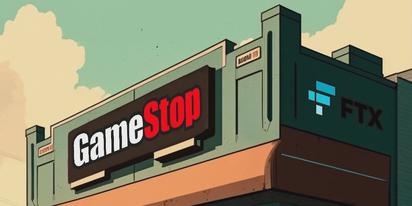GameStop Stock (GME): Short Sellers' Most Expensive Stock In Q3
- GameStop Stock continues to be a thorn in the side of institutional investors that hold a short position on $GME.
- Borrow fees remain elevated, indicating a great deal of short institutional interest in a stock that remains popular among retail investors.
- With more investors directly registering their shares with GameStop’s transfer agent, lower liquidity in the securities lending market could contribute to short sellers’ woes.

Why Care About Securities Lending?
Securities lending begins with an institution needing stocks or bonds that they don’t own and won’t (or can’t) purchase them. They need these securities for myriad reasons:
- Market Makers sell stocks they don’t own as part of their daily business. Sometimes honest participants need to borrow from the securities lending market to cover these obligations (the rest fail to deliver and laugh all the way to the bank).
- Short selling is only possible because institutions can borrow securities to sell short.
- Often, borrowers are large banks that turn around and lend the borrowed securities to smaller institutions—like a securities-centipede daisy chaining its way through the entire market.
The supposed beneficiaries of securities lending include pension plans, insurance companies, mutual funds, and other large asset owners (pdf). These institutions loan their considerable holdings for fees that allow them to scrape a few pennies of revenue toward their bottom line.
In short, we’ve built our fragile markets in such a way that they would fall apart without securities lending.
New Data Shows Borrowing Is Booming
Equilend (a firm that would not otherwise exist in a world without securities lending) recently published the tenth issue of The Purple (large document) from their Data & Analytics arm, DataLend. It’s a quarterly review of the global securities lending space, offering fascinating insights on recent securities lending trends.
They reveal that securities lending markets grew by 12% in Q3 2022 versus Q3 2021, sending year-to-date revenue soaring to $7.45 billion. More than 35% of those revenues were generated in Q3 alone, coming in at $2.63 billion.
That’s a lot of Schmeckles coming out of borrowers’ pockets.
It should come as a surprise to absolutely no one that the overall market has turned bearish. Institutions have repositioned themselves short, leading to an increase in borrowing revenue (or expense, depending on which side you’re looking at), with average fees exploding by 37%.
However, specific securities and sectors stand out far and above their peers. Lending revenue in the Consumer Discretionary sector ballooned by 80%, led by none other than GameStop.
GameStop Is The Most Expensive To Borrow As A Whole

At a whopping $102 million, Q3 fees paid by GameStop share borrowers were more significant than any other security in the world, with over 46% more costs than the second stock on the list (Beyond Meat at $70 million).
To be clear, $102 million is not the total value of GameStop shares lent; it’s the amount of money ripped from the hands of short sellers, market makers, and other borrowers in the form of lending fees. The value of shares lent is much higher.
I’m not a fan of the term meme-stock, as it derides the efforts of real people working at actual companies, but as a loose comparison, you can see that AMC shares came in fifth, costing borrowers about a third as much as $GME.
DRS May Be Drying Up GME Liquidity
One of the fascinating aspects of the GameStop saga is the DRS movement. Retail investors register their shares in their names with GameStop’s transfer agent, Computershare, rather than leaving them in brokerage accounts where they could be subject to securities lending.
With utilization remaining pegged at 100% week after week, it’s no wonder that GameStop’s borrow fees remain elevated.
The number of shares available to loan dwindles closer to zero every day, with a constant stream of retail investors posting screenshots of their DRS numbers to the Superstonk subreddit.
This activity paints a clear picture: the market is cruising towards another showdown between those who like the stock and those who can only profit if GameStop goes out of business—a veritable impossibility for a company with no meaningful debt in the process of a digital turnaround.
In the meantime, I expect GameStop to remain at the top of the borrow list for the short term as short sellers continue to pray for a black swan event to save their foolish positions.
For the record, $GME shares were up 10% at noon today, Tuesday, October 25th. I have no idea if that will hold, but I’d hate to be short $GME and staring at that kind of price action.




